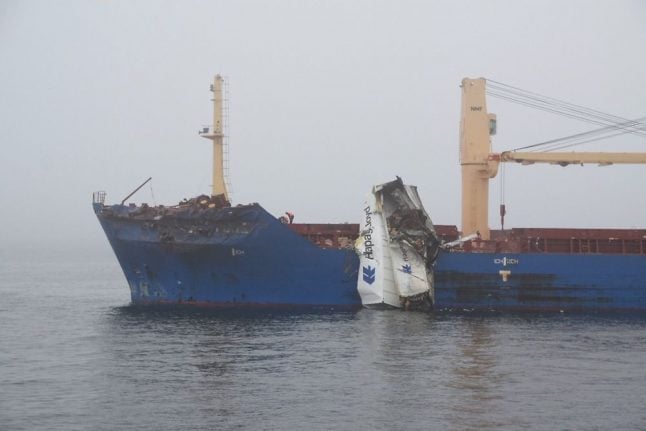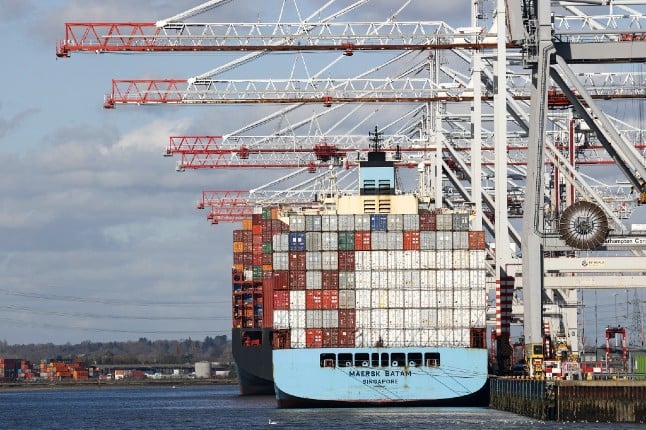The collision resulted in a brief fire on board one of the ships, the Danish military command (Forsvarets Operationscenter) confirmed.
No injuries or spills have resulted from the incident, on-duty commander Klaus Rasmussen told Ritzau.
“At 6:30am we were informed that two ships had collided north of Romsø. Fire broke out on one ship.
“Two containers fell from the container ship on to the merchant ship, and fire broke out in one of those containers,” Rasmussen added.
Both ships anchored after the collision.
“We will now get the situation under complete control. We must ensure they are seaworthy enough to move to another area,” Rasmussen added.
Both ships are reported to have sustained holes above their waterlines.
READ ALSO: Chinese navy sails through Danish waters



 Please whitelist us to continue reading.
Please whitelist us to continue reading.